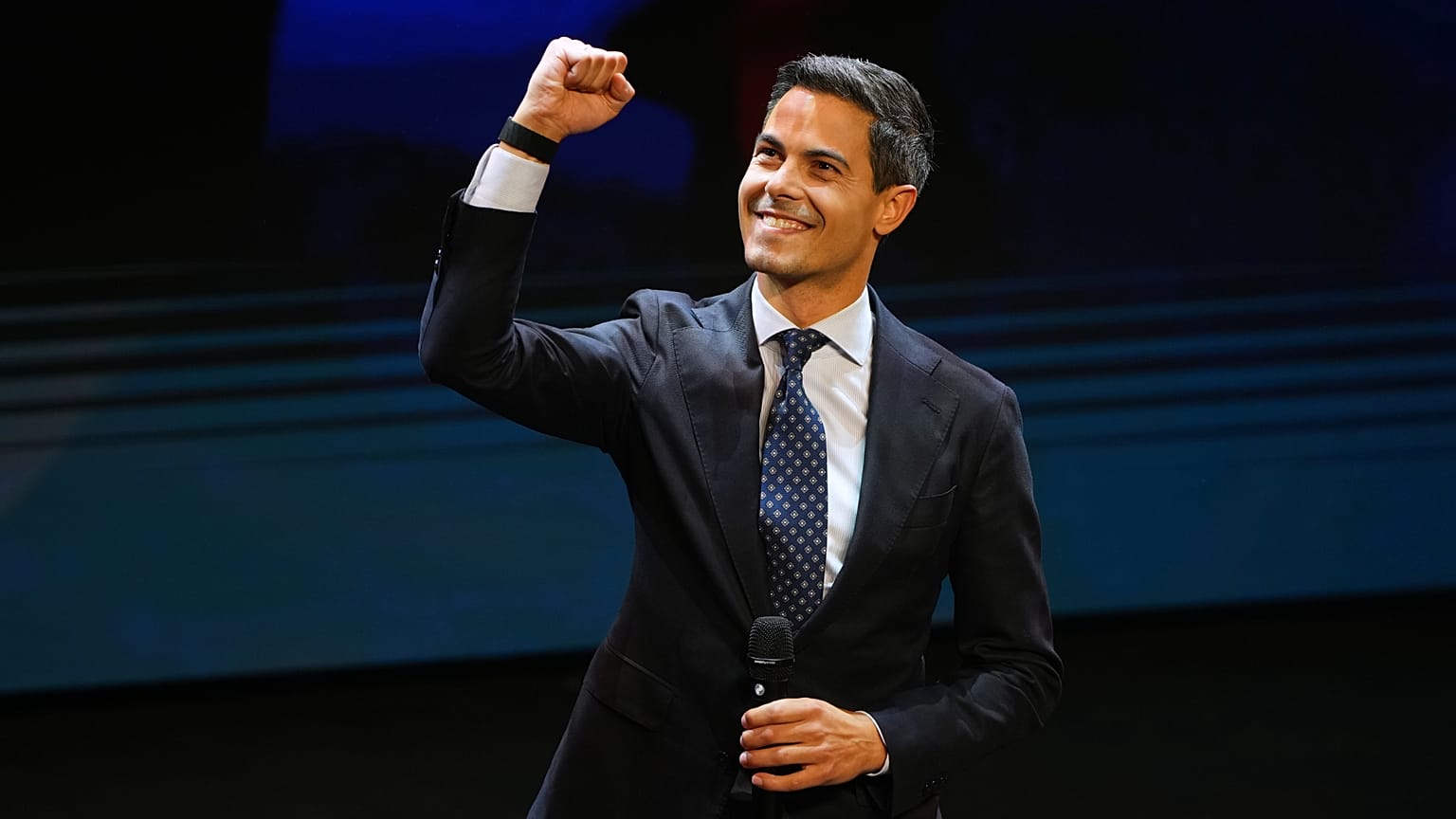The 38-year-old's D66 party is neck-and-neck with Geert Wilders’ far-right Party for Freedom after Wednesday's election, meaning he could become the country's youngest ever leader.
After a strong showing in Wednesday’s election, Rob Jetten, the leader of the centrist liberal D66 party, could become the country’s youngest prime minister.
With 98% of the vote counted, the 38-year-old’s party is projected to win 26 seats in the 150-seat Dutch parliament, an increase of 11 from the previous election.
As of Thursday morning, D66 were neck-and-neck with Geert Wilders’ far-right Party for Freedom (PVV), who are also projected to gain 26 seats. The difference between them was a little over 2,000 votes nationwide.
While Jetten is tipped to become prime minister, Wilders has said his party will “do everything" to prevent D66 from taking the lead in coalition talks, as long as it remains unclear who the biggest party is.
Most parties, including D66, have ruled out governing with the PVV.
Jetten, who cut a cheerful figure on the campaign trail, has turned his party around after an inauspicious start as leader in 2023. In that year's election, his party won just nine seats.
From 'Robot Jetten' to Dutch favourite?
Once dubbed “Robot Jetten” for the stilted way in which he answered questions, the young politician, who served as climate minister under the government of former PM Mark Rutte, struck a chord with voters this time around thanks to his positive messaging.
He was a regular fixture on TV during the election campaign, even appearing on a pre-recorded quiz called "The Smartest Person".
In a nod to former US President Barack Obama’s “Yes We Can” slogan, Jetten ran his campaign around the phrase “Het kan wel” (“It is possible”).
Jetten campaigned hard for a return to “progressive” politics, focusing on green energy to keep energy costs down, building cities to tackle the housing crisis and easing the strain on the healthcare system by prioritising illness prevention.
On the subject of housing, the centrist politician said he wanted to build 10 new towns, and that cutting red tape would allow 100,000 new homes a year to be completed.
Meanwhile, on the divisive issue of migration, Jetten pledged to spend more on integration programmes and to tackle illegal immigration by allowing asylum claims to be made from outside the EU.
If elected, Jetten said his government’s policy would be to ensure that those fleeing war or violence participated in Dutch society by learning the language. He also promised that “the rotten apples” would be “pulled out of the system” and deported.
The D66’s leader also successfully took aim at Wilders, whose party quit the coalition last June over disagreements about migration, a move that brought down the government. Jetten accused his far-right opponent of “hijacking” Dutch identity and “sowing division”.
What is the path forward?
Speaking to his supporters on election night, the would-be prime minister said: “Millions of Dutch people today chose positive forces and a politics where we can look forward together again.”
Jetten noted that with around 26 seats, D66, short for Democrats 66 — also named after the year it was founded, 1966 — is “a small large party, when compared with Dutch history”.
“So we’ll have to cooperate with many parties,” he added. However, he has made it known that he would like “to form a stable and ambitious cabinet” made up of a “broad political centre”.
His statements point to a possible collaboration with left-leaning GL-PvdA, centrist CDA and the more conservative VVD.
VVD, on the other hand, has expressed aversion to governing with Frans Timmermans of the GL-PvdA. After Timmermans stepped down following Wednesday’s lower-than-expected exit poll results, it remains unclear whether this position will change.
The question of PVV's involvement remains as well. While governing with PVV has been ruled out, a pivot on that stance could disappoint D66 voters who expressed hope for a liberal government.
The potential next prime minister, who grew up in the southern Dutch province of Brabant, is due to marry his Argentinian fiancé, the international hockey player Nicolas Keenan, next year.















